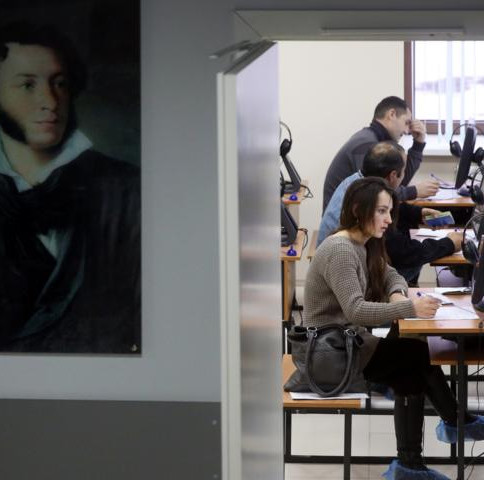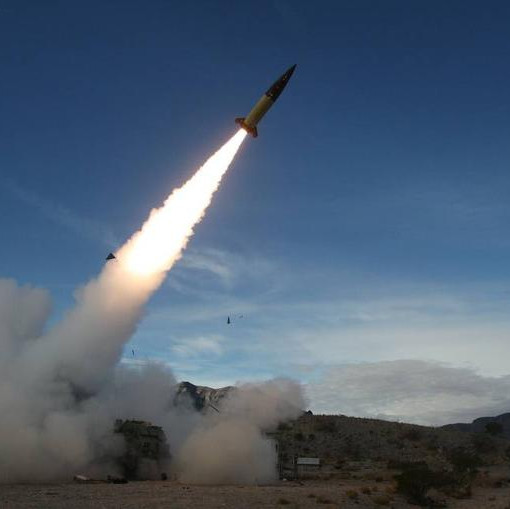Top stories from the Russian press on Wednesday, September 22nd, prepared by TASS
Izvestia: What Biden offered the 76th UN General Assembly
A year and a half of COVID restrictions have left an imprint on global relations, that’s why the participants of the 76th UN General Assembly are faced with the task of confirming the organization’s role as the key platform for coordinating international efforts, experts told Izvestia. UN Secretary General Antonio Guterres noted at the opening that today the world is more divided than ever and US President Joe Biden backed his statement. However, experts urge the public to not only listen, but also see what real steps and decisions politicians and diplomats will make in the coming days.
"First, UN member states must approve the role of the organization as a central mechanism for maintaining peace and security, designed to coordinate the actions of the international community. This is important because the pandemic, unfortunately, has largely disrupted the communications among representatives of states, and diplomacy cannot work online," former UN Deputy Secretary General Sergey Ordzhonikidze told Izvestia.
Meanwhile, Biden spoke at the General Assembly on the very first day, assuring that the US is shifting its attention from the wars of the past to current challenges - cybersecurity, new technologies, countering terrorism, and trade. The White House occupant announced the US’ readiness to fully return to the nuke deal with Iran, and to achieve the denuclearization of the Korean Peninsula and also to resolve the Israeli-Palestinian conflict through diplomacy.
First Deputy Chairman of the Federation Council's Foreign Affairs Committee Vladimir Dzhabarov told Izvestia that Washington’s requests to work together often contradict their real steps. "They cooperate only where it suits them," the senator said.
In any case, it is important that the world hears Russia’s position, which will be expressed by Sergey Lavrov, the senator stressed. Dzhabarov also hopes that some positive decisions will be made at the UN General Assembly, as well as shifts in Russian-US relations.
Nezavisimaya Gazeta: Moscow faces new sanctions over Skripal, Litvinenko cases
A new scandal has erupted between the UK and Russia over two previous high-profile crimes: the poisoning of Sergey Skripal and Alexander Litvinenko. Scotland Yard accused another Russian citizen, Denis Sergeev, of the Skripal episode. Meanwhile, the European Court of Human Rights (ECHR) has officially branded the Russian authorities responsible for the death of Litvinenko. Given that Moscow does not intend to concur with these decisions, the threat of new sanctions looms over Russia, Nezavisimaya Gazeta writes.
Kremlin Spokesman Dmitry Peskov made it clear that Russia would not pay out any sums awarded by the court. Peskov has legal grounds for such statements. Russia is the only member of the Council of Europe whose legislation allows it to not comply with the ECHR’s decisions. However, in this case, political consequences for Russia are possible, the newspaper writes.
"The UK finds itself in a new legal situation. The country is no longer a member of the EU and therefore, London is building its own "grid of sanctions", which it can now impose on its own," Nezavisimaya Gazeta writes.
"We are going around in circles in relations between our countries. From time to time, the ill-fated Skripal case comes to the fore when it is advantageous. And then anything can happen, including new sanctions," Senior Research Fellow at the Center for British Studies at the Institute of Europe, Russian Academy of Sciences Kira Godovanyuk told the newspaper.
Kommersant: EU backs France in submarine spat with US
The uproar over the collapsed deal to supply French submarines to Australia has morphed into a conflict between the United States and Europe. On the sidelines of the UN General Assembly in New York, the foreign ministers of EU countries expressed their support for France, accusing Washington of undermining cooperation with Europe in the Indo-Pacific region. The EU leadership blasted America’s actions as unacceptable and indicated its determination to strengthen its own defense capabilities, Kommersant writes.
According to the newspaper, reconciliation with European partners, despite being one of the priorities of the Biden administration, has practically been derailed. "By sending a clear message to the AUKUS members that breaking the contract with Paris in Brussels is seen as a challenge to the entire European Union, its leadership clarified that this episode raises fundamental questions about the rules of the game within the Euro-Atlantic community," the newspaper writes, adding that Brussels started to believe that the unpredictable current head of the White House is worse for the EU than his predecessor Donald Trump.
"These events reflect the fundamental shifts in today’s Trans-Atlantic relations, which began under [former] President Trump. The focus of US geopolitical interests is shifting towards the Indo-Pacific region, where China is becoming the main rival, while the significance and role of NATO and the EU are fading into the background," Chief Researcher at the Institute for US and Canadian Studies at the Russian Academy of Sciences Vladimir Vasiliev explained to Kommersant. "Under these conditions, the European allies of the US in NATO are forced to become nothing more than ‘rear support’ on the front lines of the US-China confrontation," he added.
Izvestia: Currency integration between Minsk, Moscow requires time, says Russian Deputy PM
Creating a single currency for the Union State requires time, however, the approved programs for Russian-Belarusian integration imply a rapprochement on financial issues, Deputy Prime Minister Alexey Overchuk said in an interview with Izvestia. According to him, although the EAEU countries still prefer to use the dollar and the euro among themselves, reality leads everyone to understand the importance of increasing mutual settlements in national currencies.
"Within the Union State, 28 programs have been agreed on, seven of them are within the competence of the Bank of Russia and the National Bank of Belarus. So, a rapprochement on financial issues is underway. But we also need to look at the EAEU space. The Russian ruble is strengthening in trade between Russia and the EAEU countries," he noted.
Speaking about creating a single currency, Overchuk noted that right now, national currencies are seen as one of the attributes of sovereignty. "Transitioning to a single currency requires the appropriate conditions, that is, economic ties between our countries must develop to such an extent that the need for constant costs of converting and servicing foreign exchange transactions will begin to be seen as a significant barrier to the further joint development of our economies," he said.
At this stage, it is really more important for us to focus on developing a common payment space on the scale of the Eurasian Economic Union, Overchuk added.
Vedomosti: Europe alarmed by soaring energy prices
Europe has seen gas prices in recent weeks skyrocket, momentarily reaching $900 per 1,000 cubic meters. Together with rising prices for LNG in Asia and low wind electricity generation, this led to a significant surge in electricity prices, Vedomosti writes. Soaring energy prices are affecting businesses across Europe. But it is not only power engineers and their clients who suffer - energy prices hike also affects individuals.
Rising gas prices are not the main concern, the risk of a physical shortage of gas during a cold winter and key European suppliers, primarily Gazprom, not being able to increase supplies are the main threat, Senior Director of the Natural Resources Department at Fitch Ratings Dmitry Marinchenko told the newspaper. This risk is ultimately fueling prices right now. Fertilizer producers, electricity and gas suppliers, as well as some players in the food industry, are still experiencing immense pressure - with mostly small companies being closed, the expert explained.
European nations only have themselves to blame for the current situation, after having aggressively promoted their green agenda to the detriment of traditional energy, Senior Analyst at the National Energy Security Fund Igor Yushkov believes. The sharp rise in gas and electricity prices may make the governments of European countries think about adjusting their policies in this area, he told Vedomosti.









